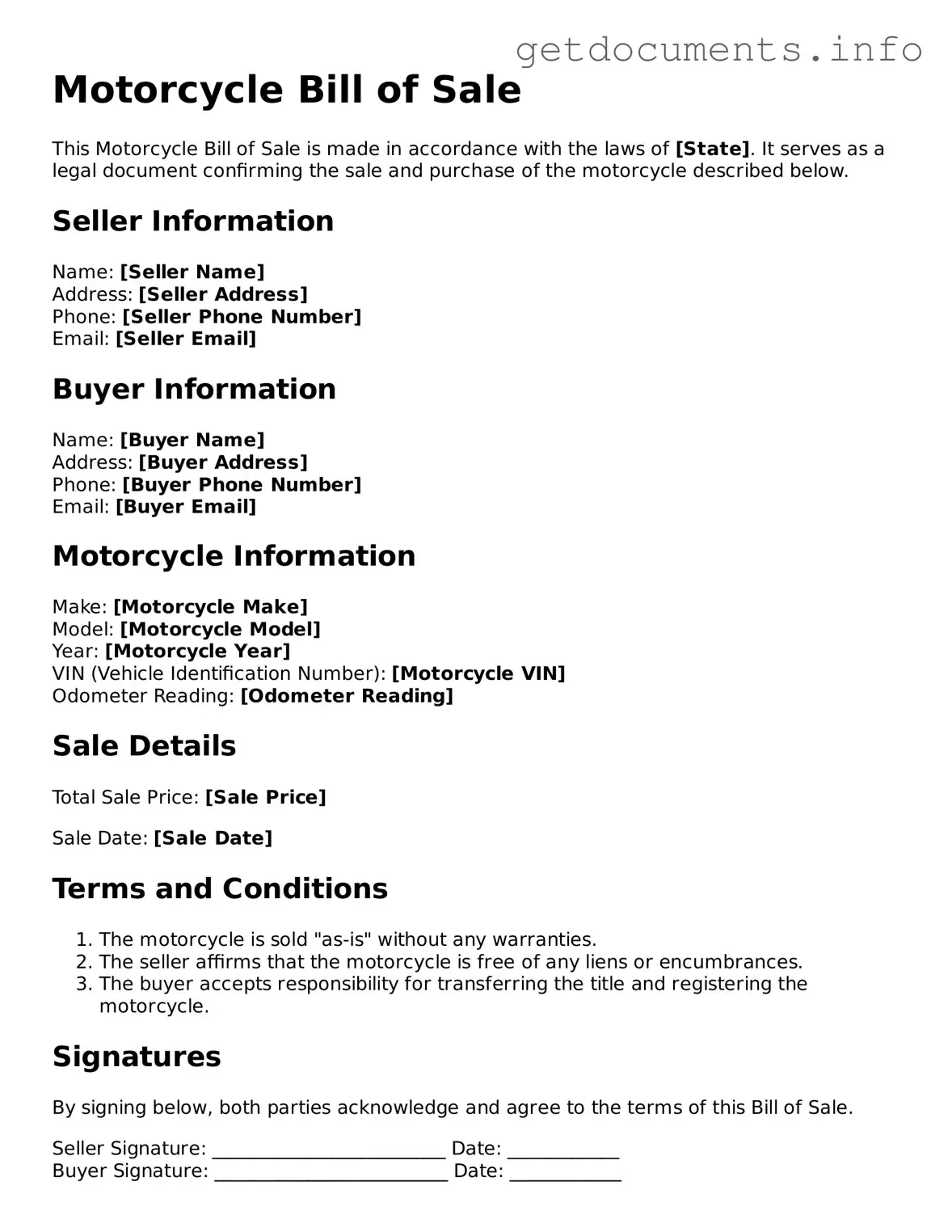Printable Motorcycle Bill of Sale Document
A Motorcycle Bill of Sale is a legal document that records the transfer of ownership from one party to another for a motorcycle. This form serves as proof of the transaction, detailing important information such as the motorcycle's make, model, and Vehicle Identification Number (VIN). Completing this form is essential for both buyers and sellers to ensure a smooth transfer of ownership.
To fill out the form, click the button below.
Access Motorcycle Bill of Sale Editor

Printable Motorcycle Bill of Sale Document
Access Motorcycle Bill of Sale Editor
Got places to be? Complete the form fast
Fill out Motorcycle Bill of Sale online and avoid printing or scanning.
Access Motorcycle Bill of Sale Editor
or
⇩ PDF File
